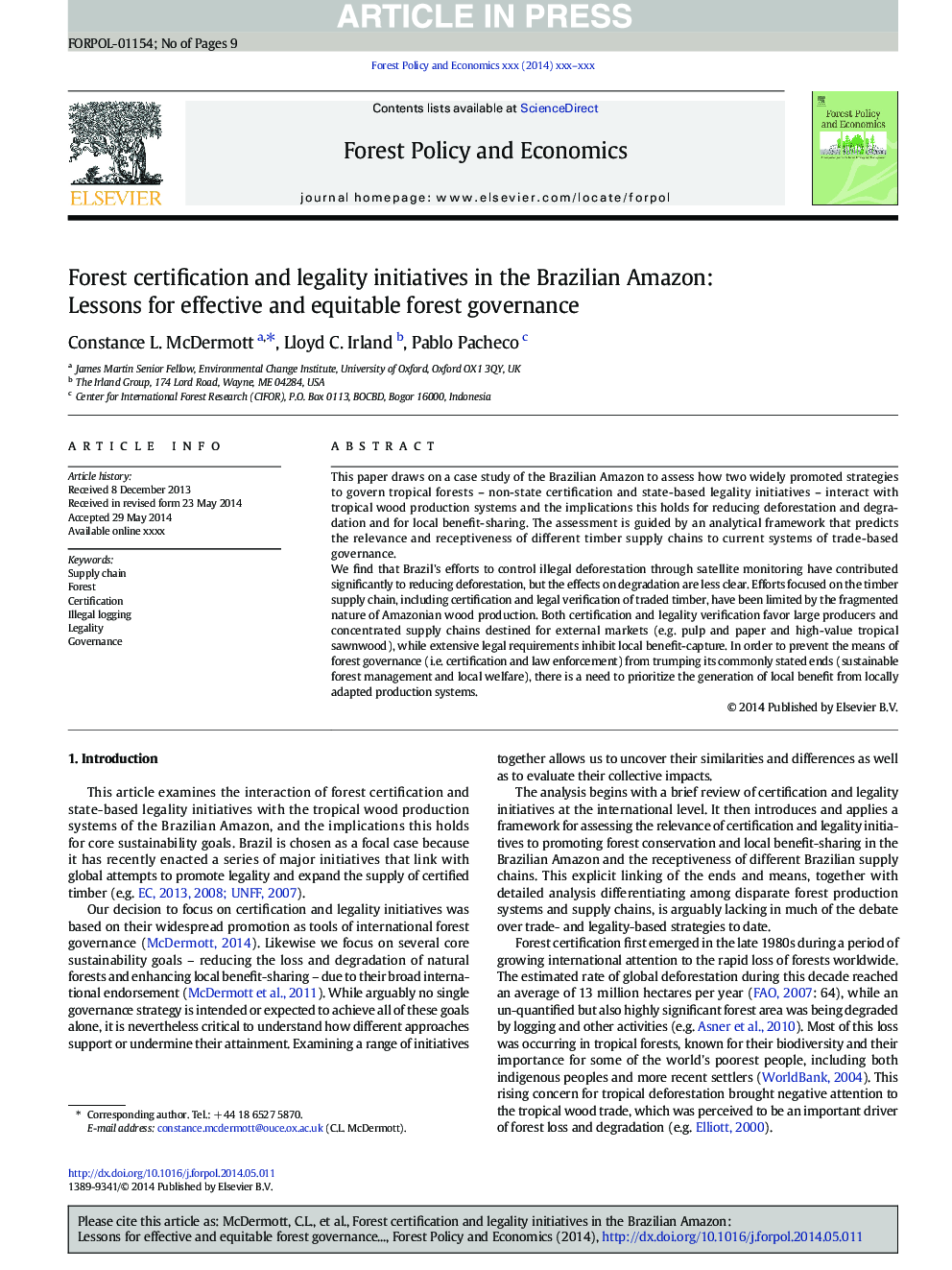| Article ID | Journal | Published Year | Pages | File Type |
|---|---|---|---|---|
| 6544937 | Forest Policy and Economics | 2015 | 9 Pages |
Abstract
We find that Brazil's efforts to control illegal deforestation through satellite monitoring have contributed significantly to reducing deforestation, but the effects on degradation are less clear. Efforts focused on the timber supply chain, including certification and legal verification of traded timber, have been limited by the fragmented nature of Amazonian wood production. Both certification and legality verification favor large producers and concentrated supply chains destined for external markets (e.g. pulp and paper and high-value tropical sawnwood), while extensive legal requirements inhibit local benefit-capture. In order to prevent the means of forest governance (i.e. certification and law enforcement) from trumping its commonly stated ends (sustainable forest management and local welfare), there is a need to prioritize the generation of local benefit from locally adapted production systems.
Related Topics
Life Sciences
Agricultural and Biological Sciences
Forestry
Authors
Constance L. McDermott, Lloyd C. Irland, Pablo Pacheco,
